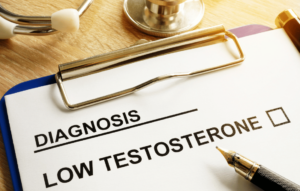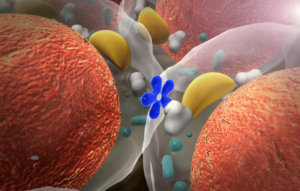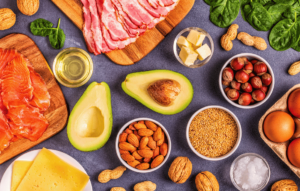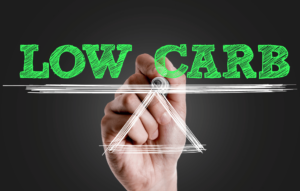Low-carb diets have taken the health and fitness world by storm over the past few years. From the keto movement to the resurgence of Atkins-style eating, a lot of guys turn to carb restriction to shed fat, shred muscle, and gain mental clarity.
The idea of carb restriction has been around for over 100 years since it was first used in 1921 by Russell Wilder to treat epilepsy in his patients. The potential benefits are fairly well-documented: improved blood sugar control, rapid weight loss, and even reduced hunger for many. However, there’s a hidden cost that often slips under the radar: a cost that could impact one of the most important hormones for men’s health: testosterone.
Testosterone is the hormone that defines vitality for men, massively influencing muscle mass, libido, energy levels, and even mental health. Alarmingly, research and anecdotal evidence suggest that overly restrictive low-carb diets may sabotage the production of this crucial hormone. Let’s dive into the relationship between carbs, diet, and testosterone to uncover what you need to know to protect your manhood.

Why Testosterone Matters for Men
Testosterone isn’t just a number on a lab test; it’s the cornerstone of what keeps men feeling strong, virile, emotionally grounded, and energetic. This hormone regulates:
- Muscle mass and strength: Low testosterone can lead to muscle wasting, even in men who exercise regularly.
- Libido and sexual performance: Testosterone is the driver of sex drive and fertility.
- Mood and mental health: Low levels are linked to depression, irritability, and brain fog.
- Bone health: Testosterone helps maintain bone density, reducing the risk of fractures as you age.
When testosterone levels dip, men commonly experience symptoms like fatigue, reduced focus, and even fat accumulation – ironic for those who turn to low-carb diets for weight loss. Understanding the nuances of how your diet impacts your testosterone is essential for achieving that higher level of health we’re all looking for.
testosterone is essential for achieving that higher level of health we’re all looking for.
The Science of Testosterone and Diet
Your body doesn’t produce testosterone in a vacuum. Hormone production depends on several factors, and diet plays a pivotal role. Two macronutrients, in particular, are vital for testosterone production: fats and carbohydrates.
- Fats and testosterone: Testosterone is synthesized from cholesterol, which is found in dietary fats. Healthy fat sources like avocados, eggs, and grass-fed meats provide the building blocks for testosterone.
- Carbs and testosterone: Carbohydrates play a subtler but equally important role. They regulate cortisol, the body’s stress hormone, which competes with testosterone. Without enough carbs, cortisol levels can spike, negatively impacting testosterone.
Both macronutrients have to work in harmony for optimal hormone production. While fats provide the raw materials, carbs help ensure testosterone isn’t suppressed by excessive stress hormones.
The Low-Carb Trap
While cutting carbs can initially lead to quick weight loss and better blood sugar management, it can also have unintended consequences. Here’s how extreme carb restriction can be a threat to testosterone levels:
Cortisol Spikes
Low-carb diets often cause the body to release cortisol as a stress response to maintain blood sugar levels. Chronically high cortisol levels suppress testosterone production. Research has shown that men on very low-carb diets often have elevated cortisol levels, particularly post-exercise, creating a hormonal environment that’s less conducive to high testosterone levels.
Reduced Insulin Sensitivity
Carbs stimulate insulin production, which plays a key role in signaling the release of testosterone. While low-carb diets improve insulin sensitivity for some people, extreme carb restriction can suppress the pathways that produce testosterone over time.

Micronutrient Deficiencies
Many carb-rich foods, such as whole grains, fruits, and starchy vegetables, are excellent sources of critical micronutrients like zinc and magnesium. These nutrients are directly involved in testosterone synthesis. A low-carb diet devoid of variety can lead to deficiencies, further harming hormone production.
Reduced Caloric Intake
Low-carb diets often lead to reduced overall calorie intake, which may inadvertently cause the body to enter a catabolic state. In this state, the body conserves energy by reducing testosterone production – a natural but typically undesirable response for men aiming to maintain or increase their vitality.
Finding the Right Balance
The answer isn’t to completely demonize low-carb diets – they definitely can work well for certain goals and body types for certain amounts of time. The key is finding balance and ensuring you’re not depriving your body of the carbs it needs for healthy hormone function. Here are some ways to make low-carb work for you without jeopardizing testosterone levels:
- Moderate Your Carb Intake: You don’t need to swing to the other extreme and eat a super high-carb diet. Instead, focus on moderate-carb consumption, especially around workouts or in the evening when your body can utilize them effectively. Nutrition is always about balance and nuance; it’s rare that any one solution works for everyone all the time.
- Choose the Right Carbs: Opt for nutrient-dense carb sources like sweet potatoes, quinoa, oats, and fruits. These provide not only energy but also essential vitamins and minerals that support testosterone.

- Stay Active: Physical activity can greatly improve your body’s ability to handle carbs, making it easier to include them in your diet without negative effects on weight or blood sugar. This is often an area that people overlook in their efforts to cut corners – there’s no free lunch, and the work simply needs doing lads.
Tips for Testosterone-Friendly Eating
To optimize testosterone while maintaining the benefits of a lower-carb approach, consider these practical dietary strategies:
- Embrace Healthy Fats: Make sure your diet includes plenty of testosterone-friendly fats from foods like eggs, fatty fish, nuts, and seeds.
- Prioritize Protein: Protein is essential for muscle repair and hormone production. However, don’t overdo it at the expense of carbs and fats – balance is key.
- Include Testosterone-Boosting Foods: Add foods rich in zinc and magnesium (like pumpkin seeds and spinach) and those with vitamin D (like fatty fish or fortified foods).
- Avoid Long Stretches of Ultra-Low-Carb: Prolonged carb deprivation can lead to a dip in energy and testosterone. Incorporate at least one moderate-carb day per week to replenish glycogen stores and support hormone balance, and consider that a low-carb diet is typically best used as an acute intervention and not always the most sustainable way to eat long-term.
- Consider Timing: Eat carbs strategically, such as post-workout or before bed, to stabilize cortisol levels and promote recovery.

Closing Thoughts
The rise of low-carb diets has been fueled by their promise of weight loss and better health, but it’s important to remember that your body needs balance to function at its best. Testosterone, one of the most vital hormones for men, thrives when you give your body the right combination of fats, proteins, and yes – carbohydrates.
In the age of ultra-processed foods, caution is certainly warranted, but men don’t need to fear carbs. Instead, the focus should be on quality, timing, and balance. By eating in a way that supports both short-term performance and long-term hormonal health for your unique needs, you can enjoy the best of both worlds: a leaner, stronger body and optimal testosterone levels.









